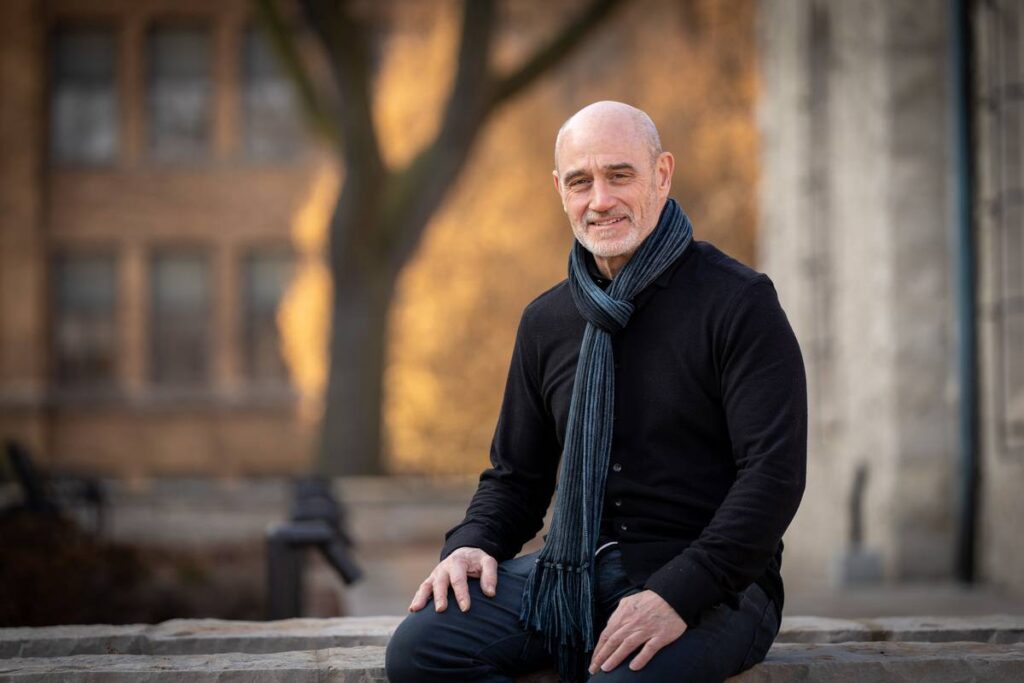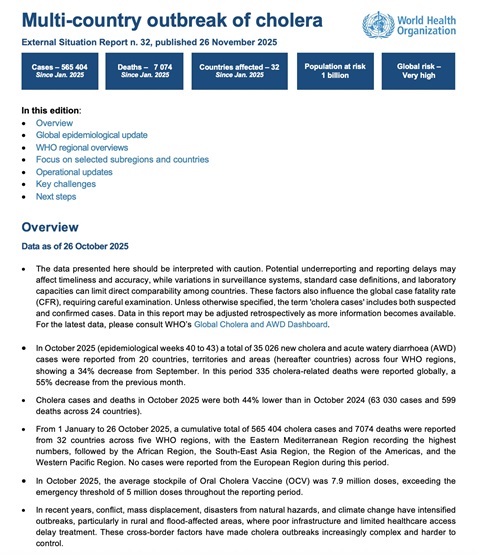Creating a counselor pipeline: reimagining mental health care access for northeast Wisconsin, Michigan’s Upper Peninsula – Marquette Today

Report on the Resch Mental Health Initiative: A Strategic Partnership for Sustainable Development
A strategic partnership has been established between Emplify Health by Bellin and Marquette University to address critical shortages in mental health care services in northeast Wisconsin and the Upper Peninsula of Michigan. The pilot program, named the Resch Mental Health Initiative, directly supports the achievement of several United Nations Sustainable Development Goals (SDGs) by creating a sustainable pipeline of qualified mental health professionals for underserved communities.
Initiative Objectives and Alignment with SDG 3: Good Health and Well-being
The primary objective of the initiative is to improve access to mental health services, a key target of SDG 3. The region faces a projected deficit of 300 mental health counselors within the next five years, creating a significant barrier to community health and well-being. By training and employing counselors who reside in the areas they will serve, the program aims to strengthen the local healthcare workforce and ensure greater availability of essential mental health support.
Program Framework
The initiative provides a fully supported pathway from education to employment for an initial cohort of 25 students. This pathway includes:
- Enrollment in Marquette University Graduate School’s online Master of Science in Clinical Mental Health Counseling program.
- Supervised clinical training and subsequent employment opportunities with Emplify Health by Bellin.
- A structured field placement requirement, including a 100-hour practicum and a 900-hour internship, all conducted within the Emplify Health by Bellin system.
- Completion of the 3,000 post-graduation supervised hours required for licensure in Wisconsin under the guidance of experienced Emplify Health staff.
Contributions to SDG 4 (Quality Education) and SDG 8 (Decent Work and Economic Growth)
The Resch Mental Health Initiative is structured to remove barriers to education and create secure employment, directly contributing to SDG 4 and SDG 8.
Fostering Quality Education (SDG 4)
The program ensures equitable access to quality higher education by providing comprehensive financial support. This removes significant barriers for aspiring mental health professionals.
- Fully Funded Education: Selected students receive full tuition coverage for their master’s degree.
- Stipend Support: Financial stipends are provided to assist with living expenses, allowing students to focus on their studies and training.
Promoting Decent Work and Economic Growth (SDG 8)
A core component of the initiative is the creation of a clear and stable career path, promoting decent work for graduates and contributing to the local economy.
- Paid Clinical Training: Students receive payment for their practicum, internship, and post-graduate fellowship experiences.
- Mentorship and Development: The program incorporates dedicated mentorship to ensure students are professionally prepared for the workforce.
- Guaranteed Employment Path: Graduates are provided with an opportunity for employment at Emplify Health by Bellin.
- Financial Incentives: Sign-on and retention bonuses are offered to encourage long-term commitment to serving the region.
Addressing Inequalities and Building Partnerships (SDG 10 & SDG 17)
The initiative serves as a model for reducing regional disparities in healthcare access and demonstrates the power of multi-stakeholder collaboration.
Reducing Inequalities (SDG 10)
By focusing on northeast Wisconsin and the Upper Peninsula, the program directly confronts the inequality in healthcare access often faced by rural and semi-rural populations. This targeted approach helps bridge the gap in mental health services, a challenge reflected nationally where millions of rural Americans live in areas with a shortage of mental health professionals.
A Model for Partnerships for the Goals (SDG 17)
This initiative is a prime example of SDG 17 in action, leveraging a partnership between:
- Academia: Marquette University provides the educational framework and online learning platform.
- Healthcare Sector: Emplify Health by Bellin offers the clinical training infrastructure and employment opportunities.
- Philanthropy: The Richard J. Resch Foundation provides the critical funding to make the program possible.
Future Outlook and Scalability
The Resch Mental Health Initiative is designed as a scalable model. There is a clear intent to seek additional funding from other foundations and donors to expand the program. Future plans include replicating this partnership model to address similar mental health professional shortages in other regions of Wisconsin, such as the central and northern parts of the state, by collaborating with other local healthcare organizations. This forward-looking strategy aims to create a lasting impact on public health infrastructure, in line with the long-term vision of the Sustainable Development Goals.
Analysis of Sustainable Development Goals in the Article
1. Which SDGs are addressed or connected to the issues highlighted in the article?
The article highlights several issues that directly connect to the following Sustainable Development Goals (SDGs):
- SDG 3: Good Health and Well-being: The core focus of the article is on improving access to mental health care and addressing the shortage of mental health professionals, which is central to ensuring healthy lives and promoting well-being for all.
- SDG 4: Quality Education: The initiative described is an educational program—a master’s degree in clinical mental health counseling. It focuses on providing quality tertiary education, removing financial barriers, and offering specialized vocational training.
- SDG 8: Decent Work and Economic Growth: The program creates a direct pathway from education to employment, offering paid training, mentorship, and secure job opportunities with bonuses, contributing to full and productive employment.
- SDG 10: Reduced Inequalities: The program specifically targets underserved rural areas (“northeast Wisconsin and the Upper Peninsula of Michigan”) that face a significant shortage of mental health professionals, thereby aiming to reduce inequalities in access to essential health services.
- SDG 17: Partnerships for the Goals: The entire initiative is built on a multi-stakeholder partnership between a university (Marquette University), a healthcare provider (Emplify Health by Bellin), and a foundation (The Richard J. Resch Foundation) to achieve a common goal.
2. What specific targets under those SDGs can be identified based on the article’s content?
Based on the article’s content, the following specific SDG targets can be identified:
-
SDG 3: Good Health and Well-being
- Target 3.4: “By 2030, reduce by one third premature mortality from non-communicable diseases through prevention and treatment and promote mental health and well-being.” The article directly addresses the promotion of mental health and well-being by training counselors to meet the growing demand for mental health services. Kim Sandstrom notes, “We do have more people coming to therapy, and now we don’t have the therapists to accommodate all the people wanting help.”
- Target 3.c: “Substantially increase health financing and the recruitment, development, training and retention of the health workforce…” The program is a direct effort to recruit, train, and retain a health workforce (mental health counselors) in a region facing a severe shortage. The article mentions incentives like “sign-on and retention bonuses” to support this goal.
-
SDG 4: Quality Education
- Target 4.3: “By 2030, ensure equal access for all women and men to affordable and quality technical, vocational and tertiary education, including university.” The program provides a “fully funded Master of Science in Clinical Mental Health Counseling” with “full-tuition coverage and stipend support,” removing financial barriers and ensuring access to quality tertiary education for 25 students.
- Target 4.4: “By 2030, substantially increase the number of youth and adults who have relevant skills, including technical and vocational skills, for employment, decent jobs and entrepreneurship.” The program equips students with specialized skills in clinical mental health counseling, including “hands-on clinical training,” to prepare them for immediate employment.
-
SDG 8: Decent Work and Economic Growth
- Target 8.5: “By 2030, achieve full and productive employment and decent work for all…” The article outlines a clear “Employment path” where “Graduates will have an opportunity for employment at Emplify Health by Bellin, providing a clear and secure career path.”
- Target 8.6: “By 2020, substantially reduce the proportion of youth not in employment, education or training.” The program provides a structured pathway for students to move from education (master’s degree) to training (paid practicum and internship) and directly into employment.
-
SDG 10: Reduced Inequalities
- Target 10.2: “By 2030, empower and promote the social, economic and political inclusion of all…” By addressing the healthcare gap in specific regions, the program aims to ensure that residents of “northeast Wisconsin and Michigan’s Upper Peninsula” are not left behind due to a lack of access to mental health services. The article notes that “nearly 37 million rural Americans live in an area with a shortage of mental health professionals,” highlighting the inequality the program seeks to reduce.
-
SDG 17: Partnerships for the Goals
- Target 17.17: “Encourage and promote effective public, public-private and civil society partnerships…” The initiative is explicitly described as a “new partnership between Emplify Health by Bellin and Marquette University,” made possible by the “incredible generosity of The Richard J. Resch Foundation.” This collaboration between the private sector, academia, and civil society exemplifies this target.
3. Are there any indicators mentioned or implied in the article that can be used to measure progress towards the identified targets?
Yes, the article mentions or implies several quantitative and qualitative indicators that can be used to measure progress:
- Number of trained health professionals: The article states the program will train “Twenty-five students from the region” in its pilot phase. This is a direct indicator for measuring the increase in the health workforce (Target 3.c).
- Reduction in health professional shortage: The article quantifies the problem by stating the region “will experience a shortage of 300 mental health counselors.” The number of graduates from the program can be measured against this shortage to track progress (Targets 3.c and 10.2).
- Number of students receiving financial support for education: The program provides “full-tuition coverage and stipend support” for 25 students, a clear indicator of progress towards ensuring access to affordable tertiary education (Target 4.3).
- Hours of practical training provided: The article specifies the amount of hands-on training students receive: a “practicum experience, which is 100 hours,” an “internship experience which is 900 hours,” and “post-graduation 3,000 hours while under supervision.” These are measurable indicators of providing relevant vocational skills (Target 4.4).
- Graduate employment and retention rates: The program’s success can be measured by the number of graduates who gain employment with Emplify Health by Bellin. The provision of “sign-on and retention bonuses” implies that retention will be tracked as a key performance indicator (Target 8.5).
- Formation and expansion of partnerships: The existence of the partnership between Emplify Health, Marquette University, and the Resch Foundation is itself an indicator. Future progress can be measured by plans to “expand this project… by partnering with other health care organizations” (Target 17.17).
4. Summary Table of SDGs, Targets, and Indicators
| SDGs, Targets and Indicators | Corresponding Targets | Specific Indicators from the Article |
|---|---|---|
| SDG 3: Good Health and Well-being |
3.4: Promote mental health and well-being. 3.c: Increase health workforce training and retention. |
– Number of new mental health counselors trained (initial cohort of 25 students). – Contribution to reducing the projected shortage of 300 counselors. |
| SDG 4: Quality Education |
4.3: Ensure equal access to affordable and quality tertiary education. 4.4: Increase the number of adults with relevant skills for employment. |
– Number of students receiving full-tuition coverage and stipends (25 students). – Total hours of hands-on clinical training provided (100 practicum + 900 internship + 3,000 post-grad). |
| SDG 8: Decent Work and Economic Growth |
8.5: Achieve full and productive employment and decent work. 8.6: Reduce the proportion of youth not in employment, education or training. |
– Employment rate of program graduates. – Number of graduates receiving sign-on and retention bonuses. |
| SDG 10: Reduced Inequalities | 10.2: Empower and promote social inclusion of all. | – Reduction in the disparity of mental health provider access in targeted rural areas (northeast Wisconsin and Upper Peninsula of Michigan). |
| SDG 17: Partnerships for the Goals | 17.17: Encourage and promote effective public-private and civil society partnerships. |
– The existence of the partnership between Emplify Health, Marquette University, and The Resch Foundation. – Number of new partnerships formed for program expansion. |
Source: today.marquette.edu
What is Your Reaction?
 Like
0
Like
0
 Dislike
0
Dislike
0
 Love
0
Love
0
 Funny
0
Funny
0
 Angry
0
Angry
0
 Sad
0
Sad
0
 Wow
0
Wow
0

















































































